
My last post, Barnes & Noble SOLD: Goliath Has Fallen & What This Means for Writers, was a long and detailed journey explicating precisely how we’ve all ended up at this spot in history—writers, readers, bookstores, booksellers, publishers, investors, etc.
The big-box bookstores are dead for good until some @$$hat forgets what a bad idea they were and resurrects them again.
In the meantime…
Now that Borders is a distant memory and Barnes & Noble a recent casualty, many of us find ourselves balancing, terrified, on the precipice of the unknown.
This time of transition possesses a particularly acute terror reserved for pre-published and published authors.
Yet, in light of all this upheaval, I challenge authors to learn from New York Publishing’s—‘The Big Six’s’ mistakes.
One mistake in particular.
Authors are NOT Bookstores

New York failed to remember its identity, and that was the critical node that set off the cascading system failures.
Legacy publishing (namely the multi-national media conglomerates calling the shots) forgot that publishers were in the STORY and INFORMATION business.
As mentioned in my previous blog, legacy publishers were NOT in the ‘protect the paper industry’ or the ‘prop up incompetent book retailer’ business. This mission drift was a fatal one that steered them straight into the metaphorical rocks.
Publishers forgot they existed as edification and entertainment dealers. They had a simple three-part mission:
I. Explore, unearth and expand any and all forms of potentially valuable content.
II. Connect that content to any media distribution channels with potential for profit.
III. Nurture profitable avenues and locate any stagnant business tributaries. If these sluggish channels couldn’t be revived expeditiously, eliminate them before they festered.
PRIME DIRECTIVE: Publishers existed solely as gatekeepers, winnowers, distributors, and cultivators. They were there to PROTECT their RESOURCE (the authors), so as to best SERVE the CONSUMERS (audiences).
That was IT. Yet, they forgot their purpose and it cost them dearly.
Storytellers, Educators & Entertainers, Lend Me Your Ears….

Now, talking to my fellow creatives and content creators. I’ll simply use the term AUTHORS from this point on for the sake of simplicity.
Authors do love bookstores, but we are not in the bookstore business.
Yes, this is actually vastly important to remember.
Bookstores exist because of us and not the other way around. Authors existed long before bookstores and we’ll be here long after bookstores.
To reiterate. Authors are in the content creation business. Distribution is a whole other matter.
I know a lot of commenters expressed feelings of depression, dismay, discouragement after reading my last post. Today, I want to remind you who you are.
Authors, this is not our first rodeo…personal extinction.
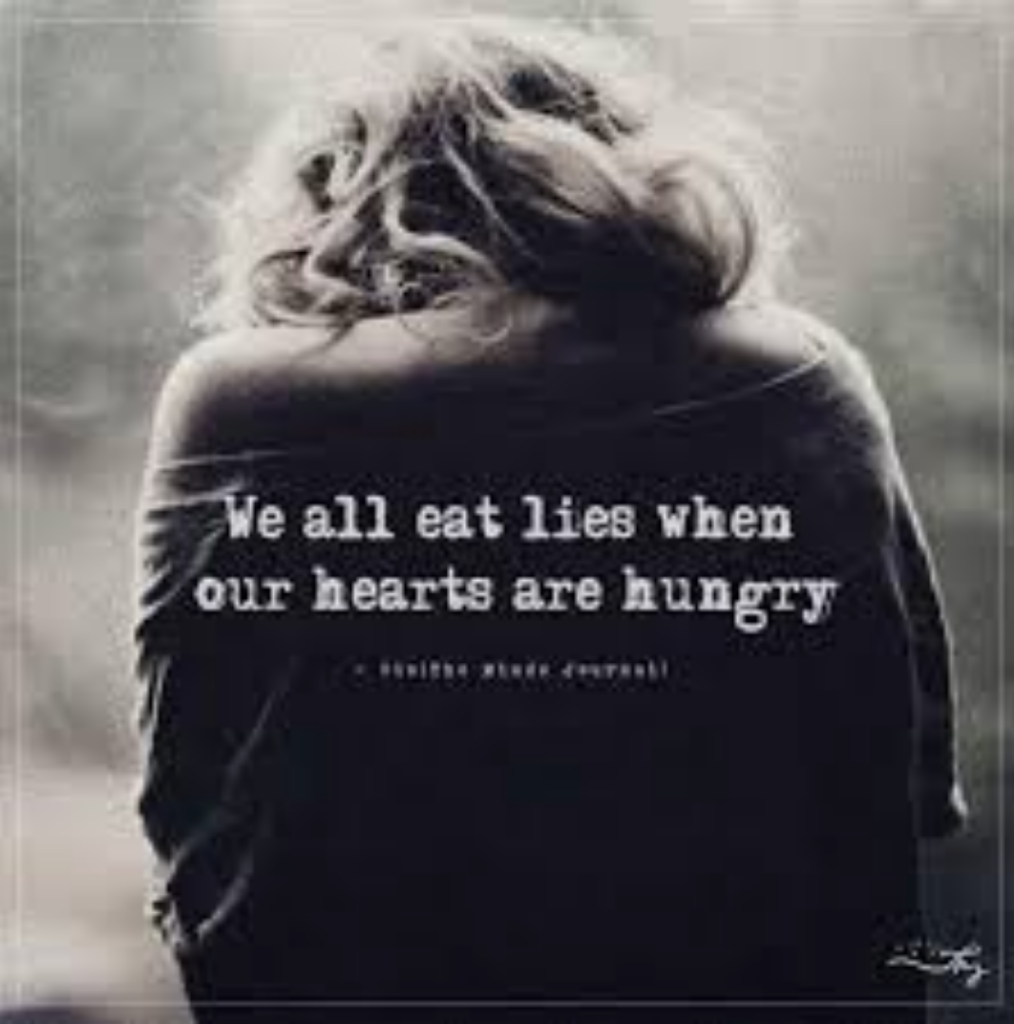
My POV? Storytellers are actually the oldest profession. Or how else could the other alleged ‘oldest profession’ get enough business to brag about being the OLDEST profession?
But I digress….
Authors didn’t start out with large publishing houses that possessed a global distribution network to disseminate our work printed in fancy paper books to stores.
We evolved from bards, crones and sages who passed on stories and knowledge orally, namely through song (e.g. Psalms) then later via theatrical performance (e.g. the Greek tragedies).
In other parts of the world, some clever folks invented pictograms and ‘authors’ adapted. We either learned how to draw or made fast friends with someone talented enough to tell our stories using pictures of CATS.
Pyramids? Talk about EXPOSURE.
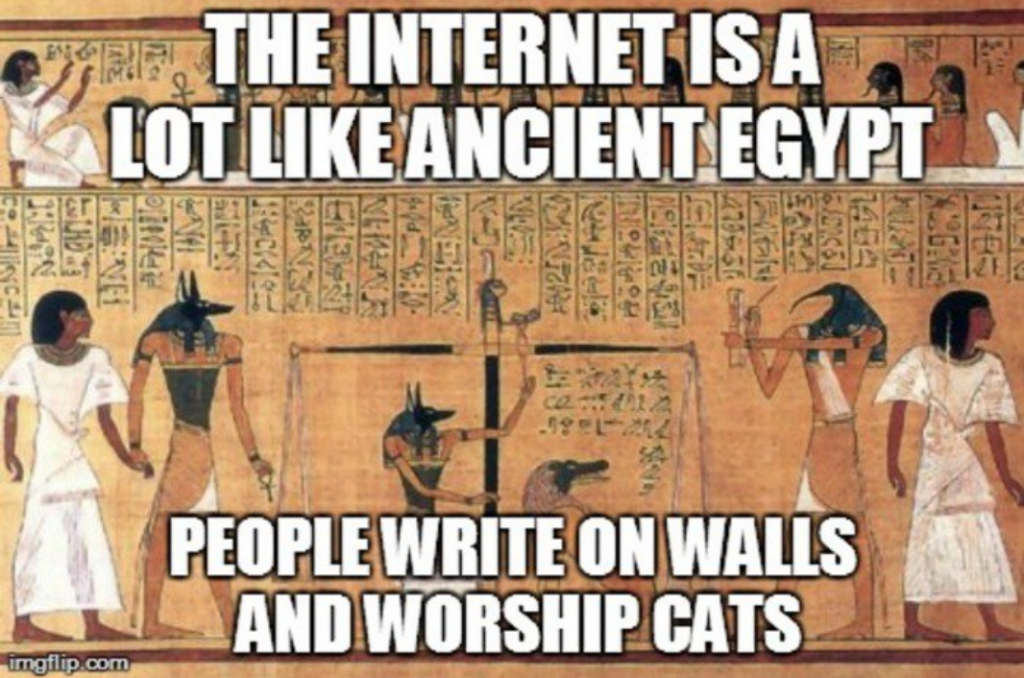
Later, Western civilization adopted this thing called ‘an alphabet’ from the Phoenicians.
***This alphabet gave authors the unique ability to point out how dismally ironic it is that the word ‘phonetic’ is in NO WAY spelled phonetically.
#HukdOnFonixWurkdForMe
With symbols, authors crafted the epic poems like Beowulf:
Authors have evolved from stories held only in memory to capturing them in pictures, to finally adopting abstract symbols that represent words and concepts.
Yes, it’s witchcraft. Can’t have spelling without a SPELL.
Think of it. To this day, authors create people, places, events, universes, empires, and religions that have never existed before we thought them up.
We do ALL this using various combinations of twenty-six letters.
More like twenty-three letters because Z, X, and Q are next to useless. Q always needing to borrow U to get anything done.
***rolling eyes***
The plain fact is that authors have ALWAYS had to find new ways to sing for their supper. In the beginning? We LITERALLY did this.
As time went on, we learned to attract patrons then publishers and producers who would financially support our art.
Suffice to say, we’ve had our world shift plenty of times and we’re still here and always will be (for those strong enough to survive the transition).
Bookstores & the Death of a Dream

A major reason Barnes & Noble’s fall has hit many so hard it is represents another dead dream. We’re grieving. It’s hard enough to do what we do without also fretting over the business side of the business (especially when they can’t seem to get their act together).
I think it’s fair to claim most authors have been in a perpetual state of terror (peppered with brief windows of hope) for far too long.
If you’re like me, maybe your sparkle’s been dimming and it’s taken everything not to give up.
Was writing even worth it anymore?
The big-box bookstores that were supposed to be so wonderful, only managed to crush our childhood dreams.
We mourned as we bade farewell to the bookstores that kindled our earliest desires to write. After the long good-byes, we moved on to a new normal.
I know I spent hours wandering the aisles of Barnes & Noble reconceptualizing what ‘making it’ looked like. Okay, so I’d never see my books in B. Dalton’s or Taylor’s or any of the small mom-and-pop bookstores from my youth, but that was life.
Fair was a weather condition.
I don’t know about y’all, but I imagined book signings, launch parties, my novels on pretty displays in actual bookstores. Yes, even Borders or Barnes & Noble.
Then Web 2.0 and the digital revolution arrived. NY and the big-box stores had every opportunity to maintain dominance. Instead, they rearranged deck chairs on the Titanic and pretended everything was jolly.
The Band Played On…
Like most pre-published authors, I fantasized about real author events, the ones where I’d read aloud to devoted fans from my latest book. I’d hug, shake hands and answer questions as I signed beautiful copies of my work fresh out of the box.
Those were the dreams that kept me going in my darkest hours when it made no sense to keep on writing. When everyone called me foolish and told me to get ‘a real job.’
I don’t think a single one of us daydreamed about favorable algorithms, a massive email newsletter list with a solid open rate, or a depressing spot for ten copies of our book on a Costco bargain table.
And I sure as hell never dreamed of working like an organ-grinding spider monkey for fractions of KU pennies.
None of us did.
This was why I wanted to point out how LONG ‘authors’ been around. We’ve been through major changes.
We took our lumps, hunkered down and waited it out as we learned how to thrive in a world with new rules. Every time our world has been turned on its ear, we survived and thrived…because we ADAPTED.
***For some eye-opening history of our industry, I recommend my posts ‘Real’ Writers Don’t Self-Publish and ‘Real’ Writers Don’t Self-Publish Part Two.
Change is Scary but Necessary
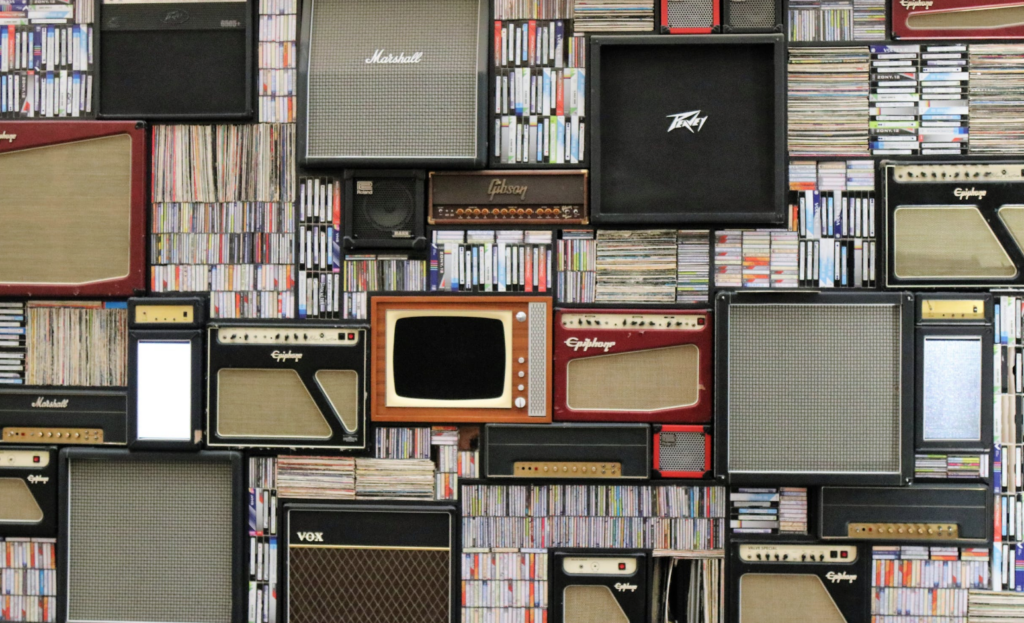
Publishers have faced similar apocalypses as well. Just think of all those monks who had to start hipster microbreweries once Gutenberg came on the scene.
Thanks a lot, Johannes. Now EVERYONE can be published.
***throws up quill and inkwell***
That, or they had to go to Vatican night school and learn how to type set.
While it’s impossible to wholly ignore the recent thanatoid shroud that’s settled over our industry, keep in mind that endings aren’t always a bad thing. Authors, of all people, should appreciate this.
Without endings, there can be no beginnings.
Any system that grows unchecked is wide open for disease, decline, and death. This is true in nature, in business, and even with bookstores.
Personally, I am GLAD Barnes & Noble finally bit it. They’ve been ‘dying’ for a like a friggin’ decade…so fair to say I’m way past over it.
Yes, it’s the end of an era—blah, blah, blah—but now we can finally move on!
The System is SICK

I’ve already relayed the long list of chronic ‘illnesses’ that plagued NY and spelled the decline if not death of The Big Six.
***Which originally was comprised of Penguin, Simon & Schuster, Macmillan, HarperCollins and Hachette and other large traditional publishers, for those who don’t know.
I think the only issue I didn’t explore in any depth was in regards to the negative impact of so much talent pool inbreeding. Sure, being a blue blood has plenty of perks, but plenty more perils to go with them.
By publishers and elite lists propping up The Author Aristocracy decade after decade, there weren’t any new authors being folded in for younger generations to fall in love with.
I believe this is why we saw such an explosion in the Chick Lit and YA (Young Adult) categories that neatly paralleled the overall decline in numbers of readers.
Younger people didn’t want to read the same authors their parents loved. They couldn’t relate to the worlds, characters, and story problems in a Danielle Steele romance or a Clive Cussler techno-thriller the same way previous generations had.
There’s a fascinating article, Bias, She Wrote: The Gender Balance of The New York Times Best Seller List.
Take a look at The New York Times top authors by decade from the 1980s to present day. You’ll see the same names over and over, the list shrinking and almost no new talent and NO young talent making it to the top.
Seriously
Obviously, this puzzled me, so I asked my super smart friend Cindy Dees who’s a New York Times and USA Today bestselling author of fifty suspense and thriller novels (and a hybrid author) about J.K. Rowling and why she didn’t appear in these metrics.
Cindy’s answer?
‘J.K. Rowling blew up the NYTBS list so hard in 2001, they created an entirely new category for her to pry her out of the #1 spot.‘
A Tale of Brick-and-Mortar Bookstores & Bias
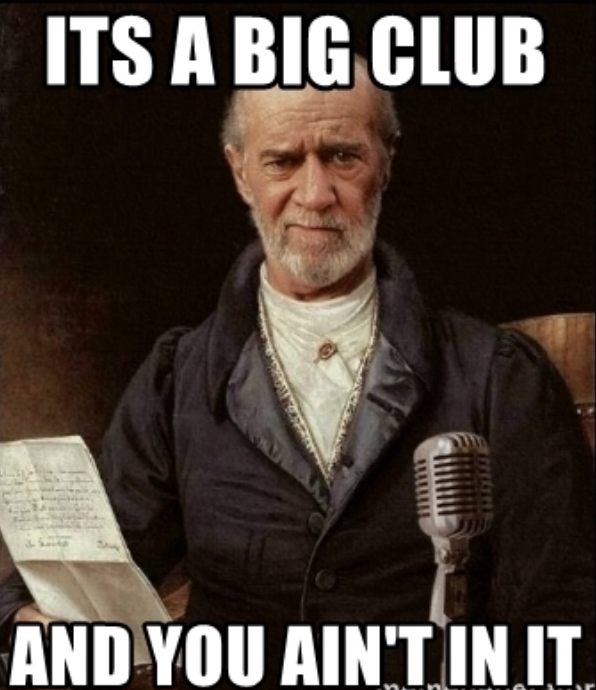
We already know that the big-box chains pre-negotiated which authors and what books would be allowed in the stores.
Yet, even as they were dying, Barnes & Noble continued to largely discriminate against indie authors and their books…even those that were selling better than their traditionally published counterparts.
My early social media books We Are Not Alone: The Writer’s Guide to Social Media and Are You There, Blog? It’s Me, Writer were top performers.
Yet, I can’t tell you how many times I received frustrated emails from fans who’d gone into their local B&N to order a paper copy and were sent away (even though my books were listed with Ingram and had the appropriate ISBNs).
My perennial branding guide for authors, Rise of the Machines: Human Authors in a Digital World has never graced a B&N shelf even though it’s earned almost a hundred and eighty positive (4 and 5 star) reviews.
I’ve actually keynoted at large events where the on-site B&N bookstores refused to order my books.
…which is kinda weird when you’re the one people have paid to see.
I know I’m not the only successful indie author who’s faced this challenge with brick-and-mortar stores (even ones that weren’t Borders/Barnes & Noble).
Brick-and-mortar stores are going to have to be open to selling good books, and stocking authors readers love and want regardless of pedigree.
First, we need fresh blood in the literary gene pool if people are going to ever get excited about reading again. That and our profession is about to marry a cousin and start playing banjo.
Secondly, consumers are searching for something fresh. What are the really getting? This meme says it best….
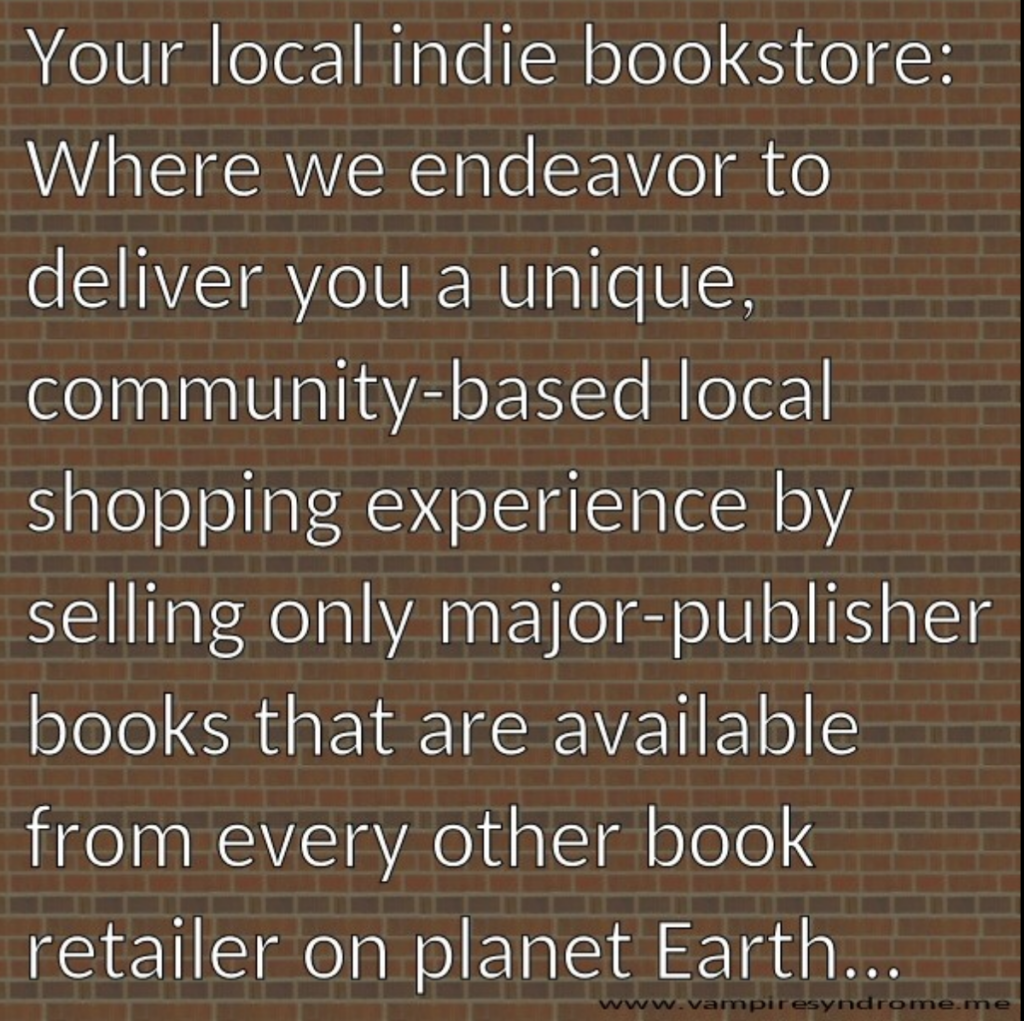
Digital Disease
Traditional publishing isn’t the only entity that’s created a mess. Sure, legacy publishers bred a certain kind of author to the point that, while they’re super pretty, they’re also prone to hip-dysplasia, neuroses, and they bite.
JOKING!
…mostly.
In the digital realm?
Amazon and other digital outlets have allowed untrained, unvetted, unteachable wanna-be writers to breed book titles faster than bunnies on fertility drugs.
In permitting this, they’ve dumped ‘History’s Largest Slush Pile’ into the readers’ laps.
The past several years have marked a time of unparalleled fraud where one’s ability to game algorithms and probe for cheats in the system for profit has trumped learning craft.
There are too many ‘writers’ more interested in mastering advertising and marketing instead of buckling down and learning about story-craft. They churn out ‘book’ after ‘book’ and can’t understand why readers aren’t lining up to throw money at unreadable junk.
An author’s job is to inspire, enlighten and entertain. We serve the reader (audience), not the other way around.
Audiences are under zero obligation to financially support poorly written, unedited wish-fulfillment fraudulently packaged as a novel.
The reason most ‘books’ aren’t selling has less to do with any lack in marketing or advertising budget, and a hell of a lot more to do with these so-called ‘books’ being an affront to the English language (and possibly other languages as well).
Spray paint a dog turd gold and all you have is a golden turd. The book industry stinks because we’re all up to our chins in literary turds hiding under fancy covers.
We all long to discover a new book, not step in one and have to scrape it off our Kindles.
Invasion of the Professional Amateur
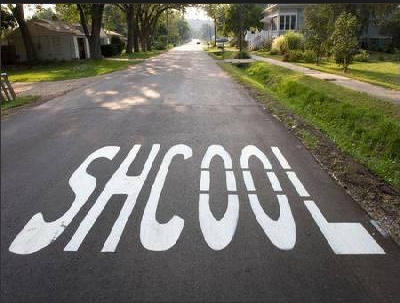
This is a message for creators as well as publishers and bookstores.
Consumers will not tolerate a marketplace with such poor self-governance much longer.
Not when Netflix exists.
Amazon (and other digital outlets) need to get their act together and put in some sort of EFFECTIVE gatekeeping to restore faith with consumers.
As far as I can tell, the desire to offer some semblance of quality control was (is) a major force behind Amazon’s push to open brick-and-mortar stores.
The objective is to smart-stock stores regionally. Stock local authors and titles that sell well in that region regardless of pedigree.
Even Barnes & Noble 3.0 is looking to employ similar tactics in the near future. Waterfords’ C.E.O. James Daunt managed to resurrect the dying U.K. giant by changing how they did business.
He ditched the cookie-cutter standardization and let the managers of each store run their location almost like the owner of an independent bookstore.
According to a recent article on Inc. Hedge Fund Buys Barnes & Noble. It Could Be Very Good News for Customers by@MindaZetlin:
It (Waterstones) also pays close attention to what customers want in different locations—including a Russian language bookstore within its Piccadilly store, staffed entirely with Russian speakers.
Daunt plans to do the same with Barnes & Noble 3.0.
Wow! Who would have thought? A Barnes & Noble with books translated into Spanish staffed with Spanish-speaking employees in El Paso, TX?
***clutches pearls***
Meanwhile, Control What We Can Control
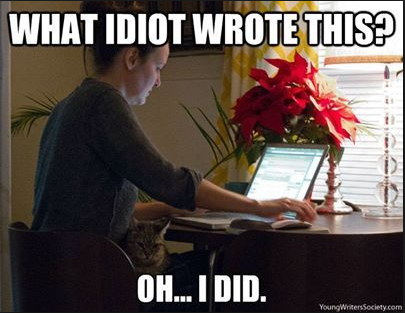
Yes, the publishing industry is a complete mess, but this mess is temporary.
A lot of the chaos today was the inevitable consequence from decades of bad business decisions (as well as the largest shift in communication since the invention of the Gutenberg press).
For generations, authors didn’t have a voice in the business of our business.
Now, we do.
I’ve been preaching since 2008 that WE ARE THE BRAND. Our brand—comprised of name, reputation and products (books)—is our most valuable asset. When our name alone can sell books, we don’t care who’s in charge because readers will come to US.
Does anyone really believe Stephen King, J.K. Rowling, Nora Roberts, George R.R. Martin or Debbie Macomber will suddenly have their careers capsize because Barnes & Noble isn’t what it used to be?
Of course not.
Fans will simply search out bookstores and sellers who carry their favorite author brands.
Guess What? Writing is a JOB
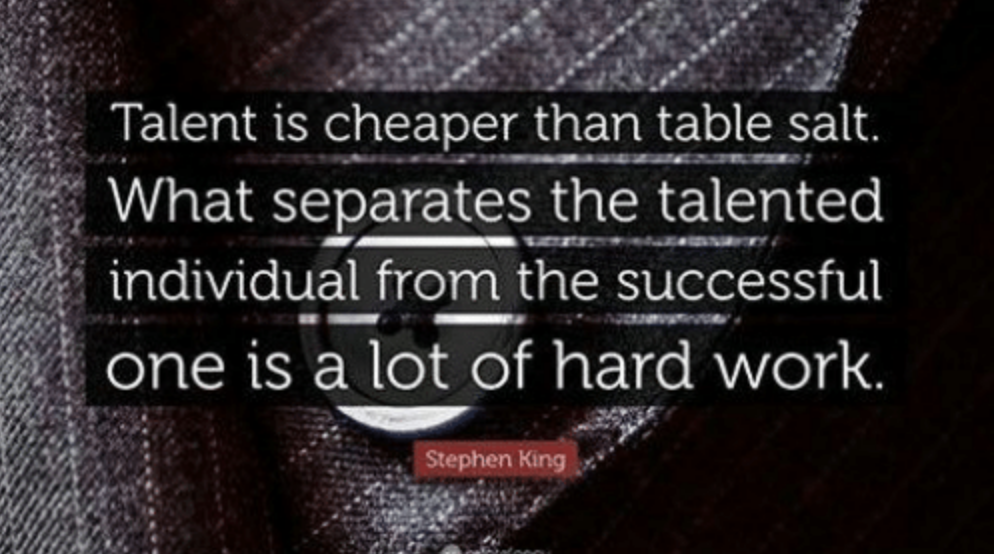
Authors are in the entertainment business. Note the second half of that word is business. The new bookstores want to stock great stories/books readers want.
Our job?
Write the great stories/books readers want and build an online brand that cultivates a following and makes us easy (for bookstores) to find.
Brands are VITAL, especially in an age of a billion options. A brand is a promise. It guarantees a certain level of quality without the consumer (readers or bookstores) having to do a ton of research or thinking.
A good brand saves TIME.
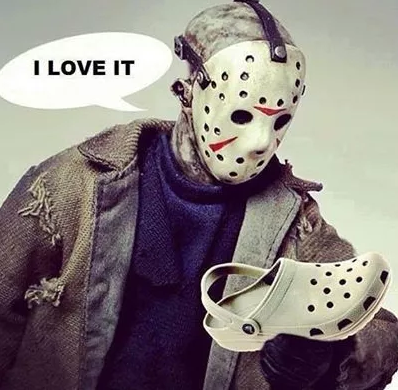
In a world with limitless choices, we default to who we know and who we like.
Consumers look to Maserati, Honda, Ralph Lauren, Spalding, Harley Davidson, Levis, Hellman’s, MAC, Bulgari, Rolex, Apple, etc, etc. because they trust the name says it all. The name implies a certain level of implicit quality.
Case in point: Bergdorf’s versus Walmart.
Brands allow time-starved consumers to quickly locate what they want/need. Most of us are willing to spend the extra dollar or two on Heinz 57 ketchup instead of trying the cheaper catsup.
We don’t want to risk being disappointed.
The beauty of a brand is that we (authors) no longer have to compete solely on PRICE. Our names become valuable, so we can avoid the race to the bottom of who can give away the most for free or nearly free.
We DO OUR JOB & Help Bookstores Do Theirs
If we want to be a successful (or at least respected) author, it’s incumbent upon us to learn the nuts and bolts of our profession.
I can’t count how many ‘published books’ I’ve seen that wouldn’t pass high school English, let alone a NY gatekeeper.
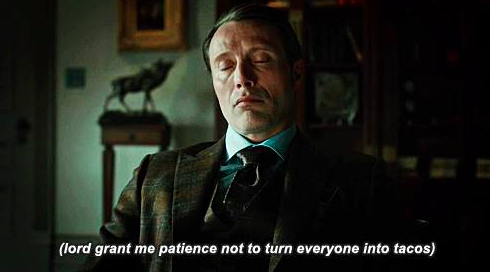
Serious authors learn grammar and how to spell (or hire those who can correct it for them).
I get there are those who are hopelessly dyslexic or who simply never mastered spelling or grammar. But, professionals are aware these are weaknesses and plan accordingly.
They don’t use ‘I’m a terrible speller’ or ‘I don’t understand grammar’ as a pass to publish books that give readers a brain bleed.
Serious authors embrace education and training.
There’s that old saying, ‘What do you call a writer who never gives up? Author.’
Great quote but VASTLY outdated. It’s from a time there were gatekeepers to pop bad writers on the snoot until they either gave up or got better.
These days, practice is essential but we need training, too. Practice is not enough.
If I go hit ten thousand golf balls without any training on how to swing a club, it doesn’t make me Tiger Woods. It makes me an idiot who likely needs a good back surgeon.
And before anyone shouts me down, if you were accused of murder would you hire a person who never attended law school to represent you?
How about hiring a mechanic who’d never successfully changed oil to repair your transmission?
But he’s seen every single Fast & Furious movie twenty times! Why so judgmental?
And yet, there are writers who brag about never reading fiction (even their own genre) and gloat about how they’ve never read a craft book or taken a class.
Too often these same ‘writers’ are mystified why their books are not selling.
Must be the marketing plan. Not a big enough budget.
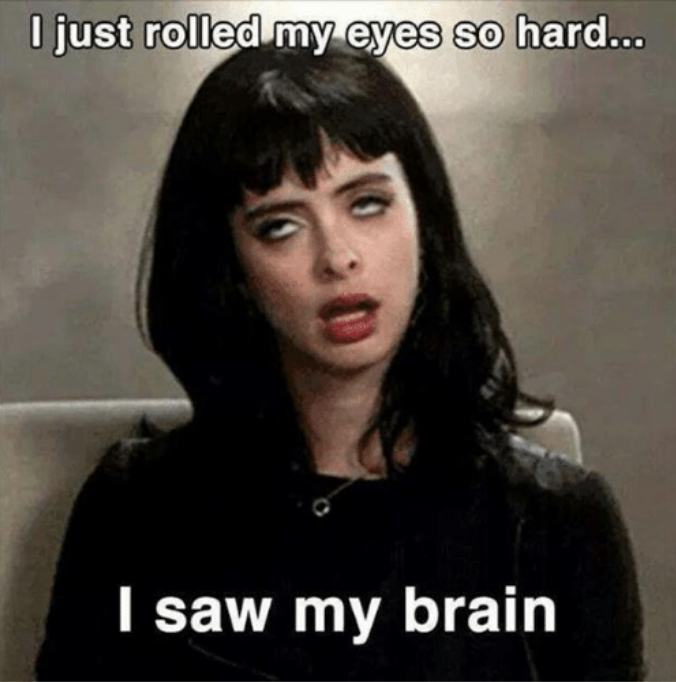
Anyway, once we learn how to write, and create a superlative product(s), we then have to cultivate the platform and create the brand.
Though hopefully you’re doing all this simultaneously.
Trust me, you do NOT want to have a book ready for sale and no platform and no brand. What is a brand?
A brand is when a name alone has the power to drive sales.
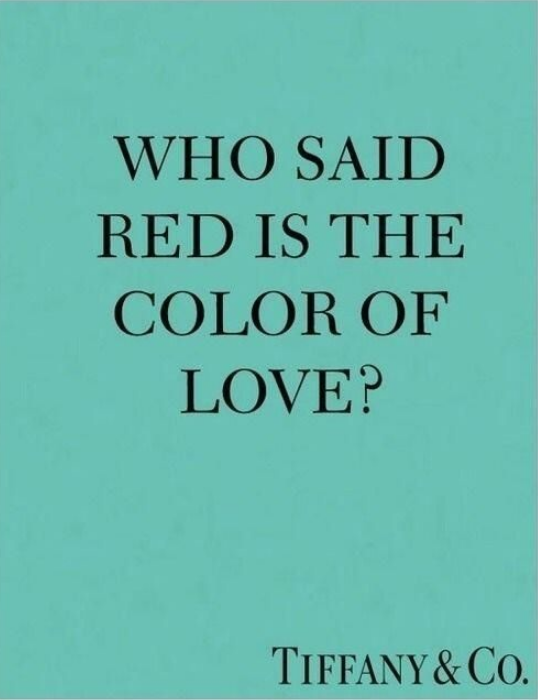
Tiffany & Co.
Neil Gaiman.
Deepak Chopra.
Again, writing great books is a HUGE part of the job, but the other part involves creating a platform and brand. This is also where I hear the wailing and gnashing of teeth.
But all I want to do is write the books.
Don’t we all?
A properly constructed brand only grows stronger over time. Authors with a solid brand have freedom, flexibility, resilience, and they also have a lot of very lucrative ways to bring in income other than books.
J.K. Rowling became a billionaire because of her brand. She didn’t make over a billion dollars on book sales alone.
Her Harry Potter brand earned (and continues to earn) hundreds of millions from movies, merchandising, and The Wizarding World of Harry Potter at Universal Studios, and more.
There are some amazing changes in the industry, and a solid brand is what makes the difference between missing the train and driving it. Within the next few years, it will be the best time in history to be a trusted author.
I won’t discuss all those avenues here, though I do detail some of them in my classes.
The Bookstores of the Future
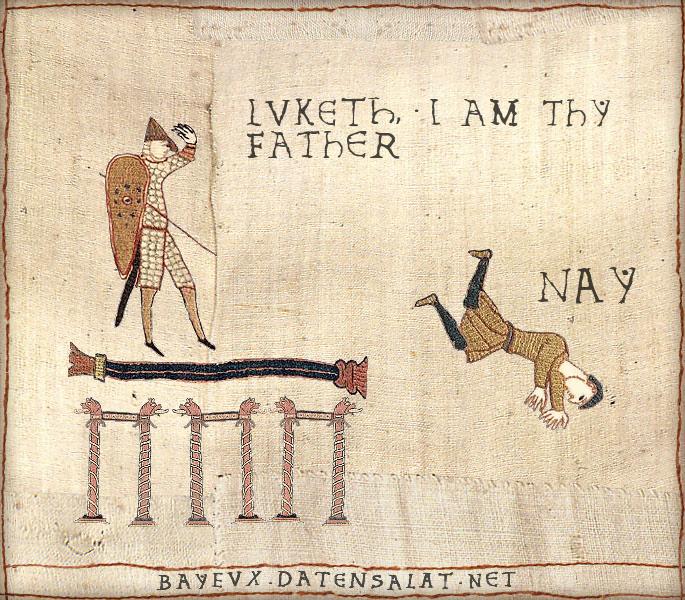
Will have the same goal as all bookstores in the past—connect readers to books they’re willing to BUY…then come and BUY MORE.
Suffice to say that bookstores will have to be able to FIND an author before they can decide if they like the author.
Barnes & Noble has already proven that stocking shelves solely with legacy published novels is no panacea. Too many known and beloved authors are not coming from the traditional path.
Bookstores will have to get a good mix of authors from all origins if they hope to be competitive.
This means that those managers in charge of the new Barnes & Noble stores, the upcoming Amazon brick-and-mortar bookstores, as well as the managers of those indie bookstores that have been thriving despite the on-line competition will stock the authors (books) they like and KNOW (code for they have a brand).
This could be any one of you guys, so no long faces anymore.
I truly believe we will see new gatekeepers emerge and the up-and-coming bookstores will do a lot better job. Hard to do a crappier one.
Eventually I believe a spot in bookstores will be part of what separates the professional from the poseur.
This said…
An Insider Tip: Publishers haven’t had a major disruptor (a runaway game-changer) in over FIVE years. 50 Shades of Grey was the last dark horse, and publishers are desperate for that new author who breaks in and turns the world inside out…in a good way.
This disruptor could be you. Why not?
In the meantime, our job is to write excellent books readers will love and cultivate that on-line brand and platform.
Feel free to get a copy of Rise of the Machines: Human Authors in a Digital World if you want a step-by-step book how to build a resilient brand that grows as you grow.
I created the book to be evergreen. It doesn’t rely on technology and is technophobe friendly (and funny). Social media changes, but humans never do.
OR you can scroll down and I have a long list of On Demand craft classes AND social media, sales and branding classes on CLEARANCE. Summer sale!
Everything y’all need to make your mark in this next phase of bookstore history 😉 .
What are your thoughts?
I LOVE hearing from you!
Are you tired of the digital revolution and the giant landfill of crap? Weary of all the focus on gaming the system instead of writing good books?
Tired of a system that almost FORCES authors to fixate on gaming strategies instead of solid writing?
Are you excited that the remnant independent bookstores and new, reimagined indie bookstores are on the rise? Does this news help ease the depression/panic you might have felt last post?
While my next post likely will tackle gatekeepers of the future and the reinvention of bookstores (in more depth) what are your ideas?
What are some ways that we can establish some NEW and hopefully IMPROVED system of finding the diamonds buried the literary landfill?
Thanks SO MUCH for all the comments last time. I promise, we’ll get back to shorter posts once the smoke clears.
Just FYI, I will have to free up space on our servers. All my classes come with a free recording. This said, I’ve put selected recordings on CLEARANCE until new classes begin.
This not only is to help y’all get the training you need (affordable summer school), but it will open up room for the new recordings of new classes.
Please take advantage of the sale! I rarely drop prices this low.
After July 17th, these classes will no longer be for sale (and will be slated for deletion).
Some, I will offer again later in the year. Others? I won’t be offering again the same way (will be likely splitting them into two classes because they ran long).
Thanks so much for your support!
ON DEMAND CLEARANCE ON BRANDING & CRAFT CLASSES!
Available until July 17, 2019
CLEARANCE Branding, Social Media & Sales Classes
ON DEMAND T.K.O. BUNDLE: Branding, Blogging & Sales for Authors
$99 (Regularly $165)
ON DEMAND Brand Boss: Branding for Authors
$35 (Regularly $55)
ON DEMAND Sales for Writers: Sell Books Not Your SOUL
$35 (Regularly $55)
ON DEMAND Blogging for Authors
$35 (Regularly $55)
Also Offering:
ON DEMAND Social Schizophrenia: Building a Brand WITHOUT Losing Your Mind
$35 (Regularly $55)
CLEARANCE Craft Classes
Plot Boss: Writing Books Readers Want to BUY!
$35 (Regularly $55)
Fiction Addiction: The ‘Secret’ Ingredient Readers Crave
$35 (Regularly $55)
Story Master: From Dream to DONE
$35 (Regularly $55)
The Art of Character: Creating Dimensional ‘People’ in Fiction
$35 (Regularly $55)
Beyond Bulletproof Barbie: Creating Strong Female Characters for a Modern World
$35 (Regularly $55)








21 comments
1 ping
Skip to comment form
Your insight is phenomenal, Kristen. I think many of us can relate to this: “maybe your sparkle’s been dimming and it’s taken everything not to give up.” Thanks for adding a little sparkle to our lives and giving us hope for our writing dreams. I’m guessing your sparkle has ignited into fireworks with the success of your prior post, and you deserve every blessing that’s headed your way because you never gave up. No, you kept going and kept looking after your tribe. This post is a winner, too. Cheers to your great success! Whoop! Whoop! Go, WANA Mama!
Hey Krtsten, there is still hope out there somewhere. As i write this I’m in Edinburgh, Scotland and have just come from Waterstones, a wonderful modern bookstore with four floors of books. It was great to be exposed to all the books on the market out where you can see and scan through, something that is next to impossible to do on Amazon and something that i enjoyed at Borders and B&N.
So the questions are what went wrong with the big box book stores in the U.S. and how does a business like Waterstones here in the U.K. continue to thrive? Maybe those are the wrong questions, at least from an author POV.
Author
Read my previous post if you want to know what went wrong. Short answer. A LOT. And ALL preventable but alas…here we are.
Kristen, I’ve read your articles over the course of many years. You’re an insightful author. Still, please learn the difference between the words composed and comprised. Comprised is an umbrella word.
Author
Not to split hairs, but synonyms of comprised: consist of, be made up of, be composed of, contain, take in, embrace, encompass, incorporate. I searched the blog for where I used it and it seems to me to be the appropriate word choice. I also looked up ‘composed’ and it directly references feelings, so I’m unsure how that is the superior word choice. I am ALWAYS open to learning (which is why I looked it up) but I am missing why ‘composed’ is the preferable choice for ‘comprised.’ Especially, since I had to go about three definitions in and got these as synonyms for composed: make up, constitute, form, comprise.
Thanks for the thought though! Grammar challenge 😀 .
It’s so encouraging to hear that younger writers should have a place in the publishing world! It inspires me to keep writing, and to learn how to build my brand. Thank you for this post!
Hi, Kristen. What do you think “gatekeepers” at Amazon and Ingram Spark and other indie publishing distributing sites might look like? Do they need to READ the millions of submissions to vet them? Won’t that affect their profitability? I’d love to see a post from you addressing these questions. The reason I TRIED to go the traditional publishing route is because I wanted a gatekeeper. I wanted to make sure my books were THE BEST they could be before anyone other than editors or agents read them. Why would I want my name associated with a second-class product? It’s too bad more people don’t feel this way.
Also, I have tried to get my books into my “local” bookstore (Powell’s City of Books in Portland, OR is a bookstore-lovers dream and their spouse’s nightmare) and have been refused because “they have too many requests to accommodate every self-published author” but I have hopes that I can send READERS their way to ask for my book and have them look it up on Ingram and order it because “what the customer wants to buy a smart retailer wants to sell them.” I understand shelf space is prime real estate and that my sales records are NOT compelling, but it doesn’t cost them anything to order a book that’s already SOLD, right? Isn’t that a win-win situation for them?
Okay, time to go work on the first draft of the third book in my Christian historical fiction novella (because 40,000 words does NOT a novel make). After all, I have to get the manuscript to my editor in Ocotober and while some people see that deadline as “far and away” I see it as looming!
Author
I am actually going to do posts on my projections (or at least IDEAS) on how they can reinstate legit gatekeepers. I’ll do one on the future of bookstores as well and how variegated they’re likely to be. But physical books really aren’t where the money is. There are other, more profitable avenues for fiction. And I’ll leave that there. I talk about it in one of the classes I have listed, and soon I’ll post on those venues but not handing all my gems away here 😉 .
Ah, yes, profitability. I understand that is NOT in print, but those dreams of mine die hard. I plan to have my books available in all formats, and although it costs more to get print cover wraps and formatting, I still want to be able to hold my book and sign it and hand it to a reader who is planning to bury their nose in the delicious scent of it. And read it again. And lend it to a friend (lost sale? Probably, but if my story reaches that heart, what is money to that?) Don’t get me wrong, I’d love to break EVEN on a writing project of mine. Making a profit? That would be AMAZING! I’m looking forward to reading all your theories and “gems.”
Author
Oh I agree! I, too, long to have books on shelves. My only caution is for writers not to fixate there. If we can make profit elsewhere, that takes the pressure off and so we are far more likely to write more books and better books with financial backing. We have more energy and resources to invest into our work and it helps with confidence to know we’re are doing well in, say, audio. It also goes a LONG way to negotiating a slot on shelves. No bookstore owner is going to turn away an author’s physical books if the audio is already making bank :). Demonstrates we are a wise investment to place in their stores.
Kristen, I love that you are the voice of reason amongst all the din. You are most helpful to newbie me.
Yay! Happy little pedant has found a corner of the internet with correct use of e.g. instead of i.e. 🙂
That said, you make some great points about the ever-changing, never-failing way of the storyteller. I sometimes wonder how I’ll survive in a post-technopocalypse society, but then I figure I’ll be fine. It’s the algorithm-monkeys who will be in trouble…
While in Cambridge in the UK, I returned to the Waterstones bookshop over and over. It had a great atmosphere, loads of book tables of all kinds of books (not just the bestsellers), and a great poetry section. It wasn’t a huge barn. It had two cafes and helpful booksellers. It just felt like a great place to be.
I keep hearing from people that indie bookstores are a ‘bad’ way to sell books but being on the shelf at The Tattered Cover in Denver has been very successful for me. I think Indie bookstores are great and many folks (including me) have complained to B&N about not stocking books that meet their criteria for inexplicable reasons. Thanks for your article, it was great.
The real problem is growth capitalism. Especially since we went off the gold standard in 1971 and embraced the financial ponzi called trickle down economics with Reagan.3000 years of economics overturned by Thatcher and Reagan and it’s all going to crash utterly. 2008 isn’t over yet, it’s just getting started and that is why malls are empty and book stores go bust. It’s inevitable macro economics.
The good news is this… over the last six years of my working at Barnes and Noble, I have seen more and more people looking for PRINT… starting to see niches and needs for everything, but diversifying… like the rediscovery of vinyl… Things may never be as “big” as WE remember them, but let’s be honest: Big Box Stores were a business PHASE. What has held on is the interest in books and in print and in authors. What we have to do is reinvent the way we SELL those items in the way the public wants them — not the MAJORITY of the public, but ALL of our public… so yes, ma’am, there is room for those mom and pop bookstore the giants put asunder… just as there is now room for ebooks. Everything has its time. And EVERYTHING changes.
I could well be one of those ghastly self published frauds flooding the market. My college English professors might even agree with you. My only disagreement here is that the brick and mortar publishers of the past were the guardians of good writing. They originally, in some cases were the writers themselves. While my piddling attempts have been published on the great “Zon,” it isn’t my ideal way to publish. Have I learned from it? Yes, the mistakes were learning experiences. Did I republish an update that corrected most of them, absolutely! My problem isn’t with the art or skill of writing, that will always be on my self improvement list. It is with the branding, the development of fan base to become something other than that which I already am, a writer. The branding and selling is the part of writing that is a challenge I have very little interest to face. It is a struggle to even attempt to become sales and marketing of my own “product.” The appeal of a contract with a someone other than myself is aversion that puts me on the fence.
Author
I don’t know if I claimed they were guardians of good writing. But there is a market now flooded with ‘novels’ that aren’t even readable. Most of the time, books like that never made it onto a bookstore’s shelf unless the ‘author’ paid a vanity press to get them in. Books in bookstores at least had some sort of vetting unlike self-publishing which is a total Charlie Foxtrot.
I will post more on gatekeepers of the future soon. It’s a topic we really need to address.
What about the self publishers (opening a trash bag on a hot day with this) who are trying to study and learn how to be their own gatekeepers (including the sources, such as yourself who help us identify reliable sources and point out common areas we fail to notice)? Granted, most of the producers of the books you are talking about probably won’t/don’t trouble themselves to seek out self improvement, but that group might be a large enough one for both snakeskin sellers and genuine educators to market to.
Author
Oh trust me I have a LOT to say on this. Snake oil ABOUNDS.
I like skin over oil, because like a chameleon their colors change to suit the most profitable market.
[…] Have authors been affected by the closing of bookstores? Kristen Lamb addresses the death of ‘ye olden bookstores’ and the author identity crisis. […]